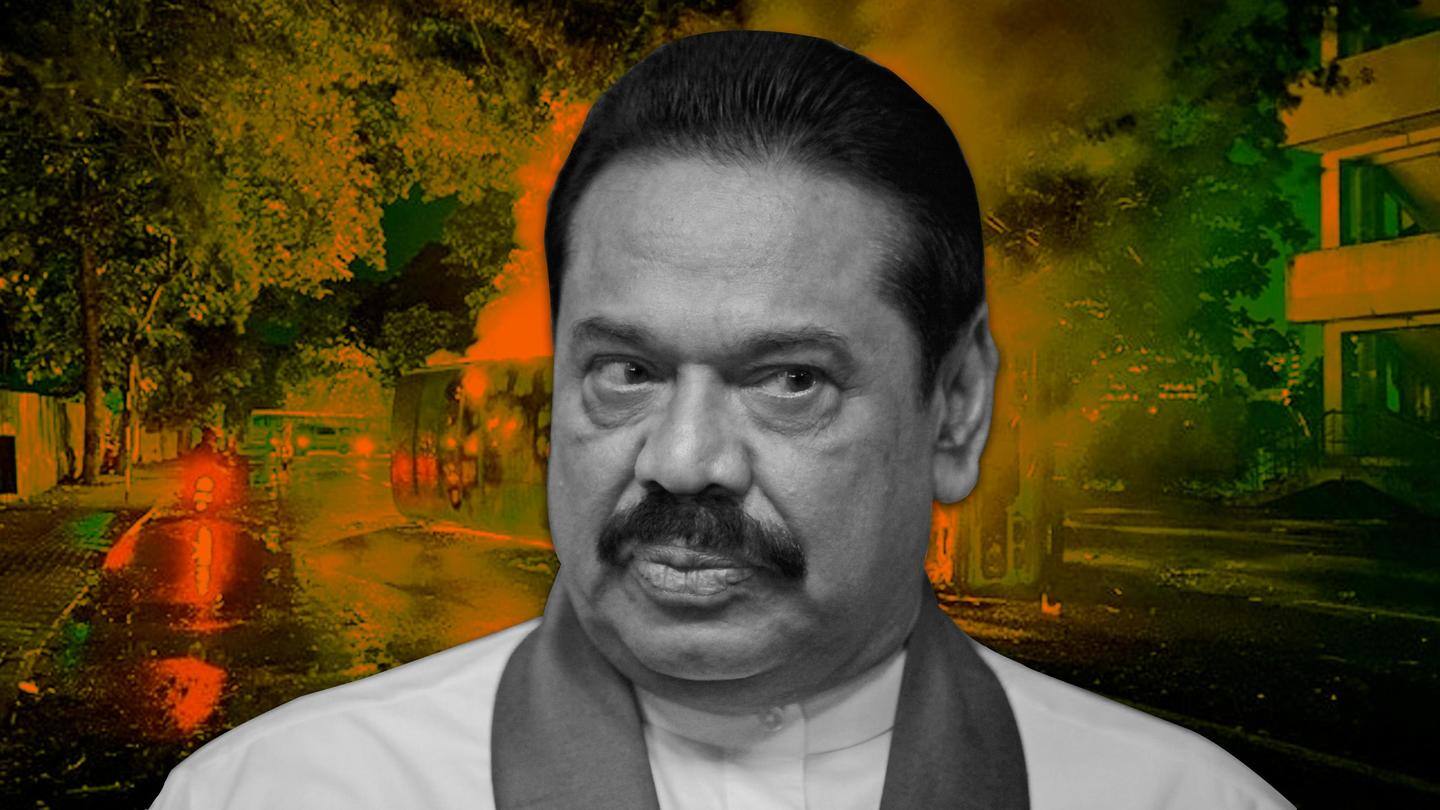
Sri Lanka: Ex-PM Mahinda flees to naval base amid protests
What's the story
Former Sri Lankan Prime Minister Mahinda Rajapaksa and his family have reportedly sought refuge at a naval base in Trincomalee, in the country's northeast region.
Meanwhile, deadly protests continued across the island nation amid its worst-ever economic crisis.
Mahinda and his family were reportedly flown to the naval base in Trincomalee—about 270 kilometers from Colombo—by helicopter and protests have erupted there as well.
Context
Why does this story matter?
The development comes after Mahinda announced his resignation on Monday amid massive protests and growing resentment against the government among the public.
Sri Lanka has been reeling under its worst economic crisis since independence—stemming from a foreign exchange crisis that led to shortages of essential supplies like fuel, food, and medicine.
Protests have been ongoing for days, calling upon the government to find solutions.
Fact
Thousands of protesters entered ex-PM's residence last night
The military reportedly rescued Mahinda and his family early on Tuesday after large numbers of anti-government demonstrators poured into his official residence in Colombo overnight.
At least ten petrol bombs were thrown into the compound.
The police fired warning gunshots and used teargas to keep protesters at bay.
Meanwhile, Mahinda's supporters and protesters clashed in Colombo on Monday, leaving five dead and 200 injured.
Violence
All about yesterday's deadly violence amid protests
The violence on Monday began when Mahinda's supporters—reportedly brought into Colombo from the countryside—attacked demonstrators with sticks and clubs.
The anti-government protesters were reportedly staging a peaceful demonstration demanding Mahinda's ouster—before he announced his resignation.
Violent clashes were also reported from various other parts of the country.
Mahinda's brother and Lanka's President Gotabaya Rajapaksa, meanwhile, has extended the nationwide curfew until Wednesday, reported ANI.
Details
Protesters set fire to 41 houses of ruling party lawmakers
Despite curfews, protesters reportedly torched at least 41 houses of the ruling Sri Lanka People's Freedom Alliance (SLPFA) lawmakers on Monday.
Meanwhile, outside of Colombo, ruling party MP Amarakeerthi Athukorala shot at two people, killing a 27-year-old man, after being surrounded by anti-government protestors on Monday, according to the police.
"He then took his own life with his revolver," a police officer told AFP.
Offer rejected
Opposition rejects President's offer for interim government
Meanwhile, Sri Lanka's main Opposition party— the Samagi Jana Balawegaya (SJB)—on Tuesday refused Gotabaya Rajapaksa's proposal to form an all-party interim government under him.
Instead, the SJB insisted that the president, like his family members, must step down from the post.
However, the state of emergency—which he declared on Friday—reportedly gives him sweeping powers to suspend laws and detain people as well.
Reason
Why Sri Lanka is facing an economic crisis
Sri Lanka's economic crisis is a result of its massive foreign debts, dwindling foreign currency reserves, series of lockdowns, soaring inflation, fuel supply shortage, and devaluation of the currency.
It, however, has its roots in the Lankan government's move to ban imports in March 2020 to save foreign currency for its $51B foreign debt leading to a shortage of essential items and skyrocketing prices.
Solution
What is the way out now?
Experts believe that Sri Lanka has to restructure its debt and repay it over a three-year period to deal with the ongoing economic crisis.
This will help it to save US dollars and ease the burden on the citizens experiencing shortages of essential items.
The cash-trapped island nation also sought a loan from the International Monetary Fund (IMF) under the rapid financial instrument window.